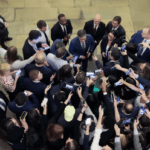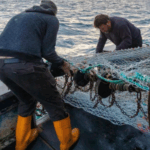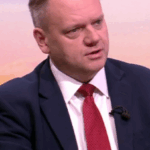Germany’s opposition conservative bloc, led by Friedrich Merz, is projected to win the national election, setting the stage for Merz to become the country’s next chancellor. Exit polls from public broadcaster ZDF indicate the CDU/CSU alliance secured 28.5% of the vote, while the far-right Alternative for Germany (AfD) achieved its best-ever result with 20%.
Merz, 69, has promised stronger leadership and closer ties with international allies, marking a departure from former Chancellor Angela Merkel’s centrist approach. With no party securing a majority, Merz will now seek coalition partners—a process expected to be challenging given the nation’s political fragmentation and ongoing debates over migration and the far right.
The AfD’s rise reflects a significant shift in public sentiment, driven in part by concerns over immigration following recent violent incidents involving suspects of migrant origin. AfD co-leader Alice Weidel celebrated the party’s breakthrough, declaring that the anti-immigration platform is now a permanent force in German politics. However, mainstream parties have ruled out forming a government with the AfD.
The election follows the collapse of Chancellor Olaf Scholz’s coalition, composed of the Social Democrats (SPD), Greens, and Free Democrats (FDP), amid disputes over budget spending. With Germany facing economic contraction, rising living costs, and challenges from global competitors, the incoming government will need to address these issues while navigating complex coalition talks.
Adding to the political turbulence, U.S. President Donald Trump’s administration expressed support for the AfD, with Vice President J.D. Vance and Elon Musk voicing anti-immigration views. Trump’s push for a Ukraine ceasefire without European input has further complicated Germany’s foreign policy outlook.
Looking ahead, the most likely outcome is a “grand coalition” between Merz’s conservatives and Scholz’s SPD. However, if smaller parties cross the 5% threshold to enter parliament, a three-party coalition may be required, prolonging negotiations. As Germany’s future leadership takes shape, both domestic and European stakeholders are watching closely, hoping for a stable government capable of driving economic recovery and strengthening the EU’s collective response to global challenges.
















